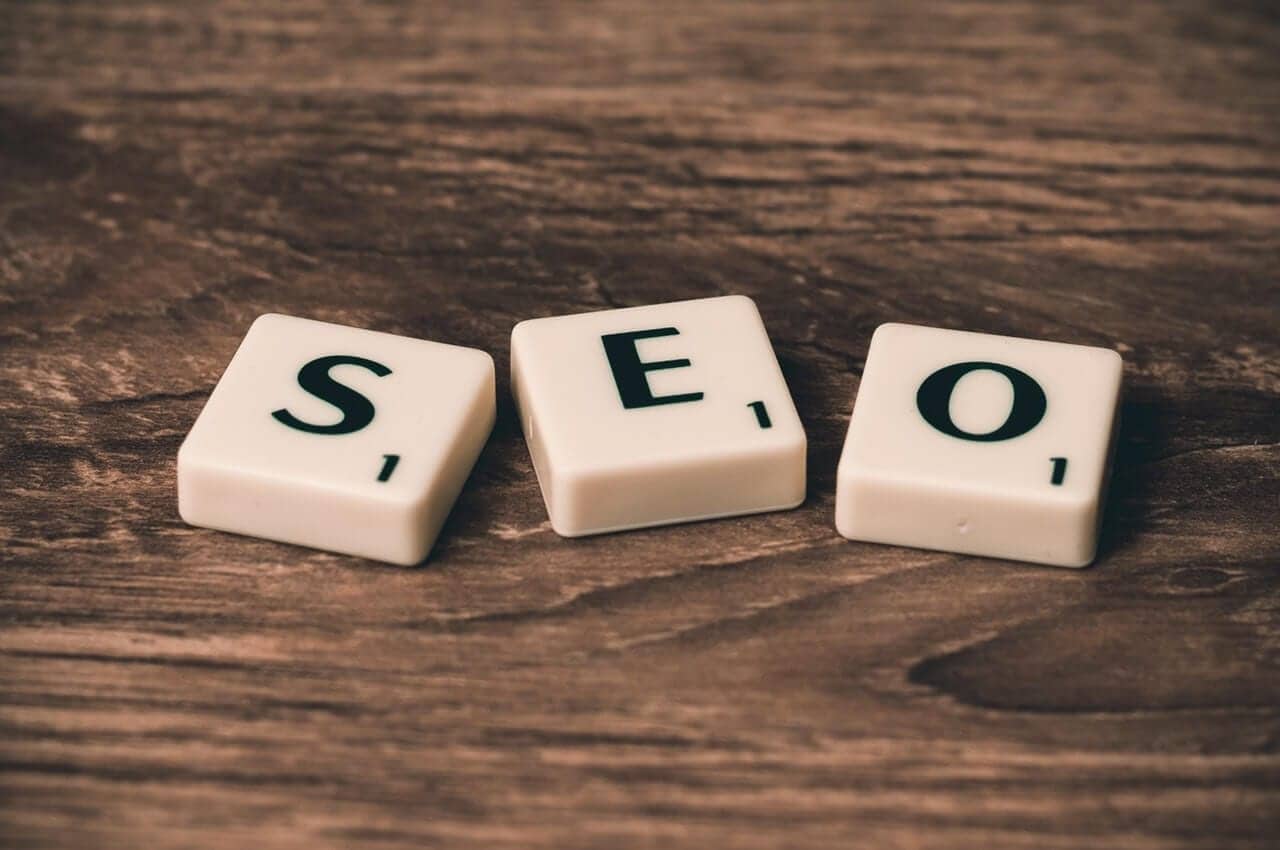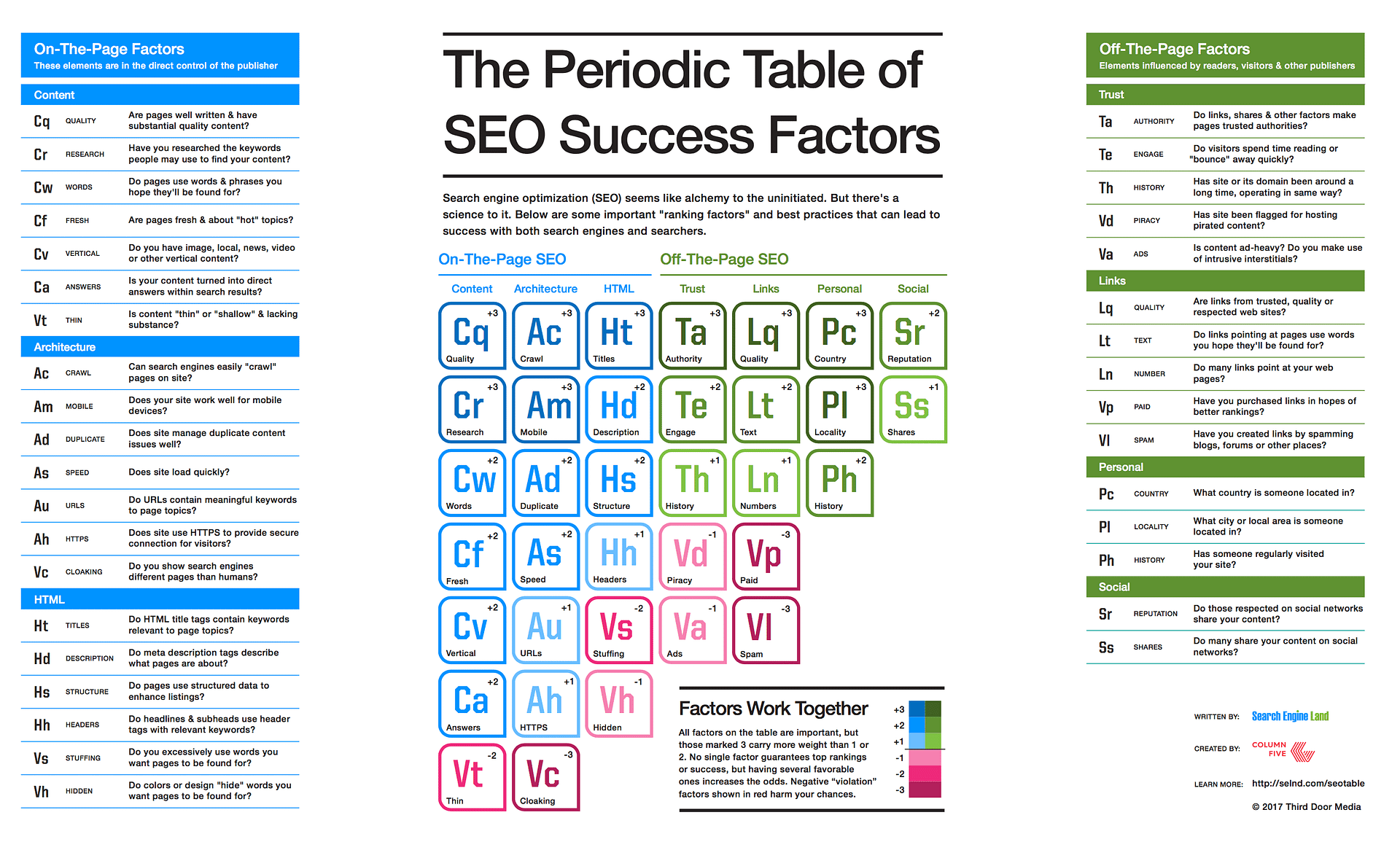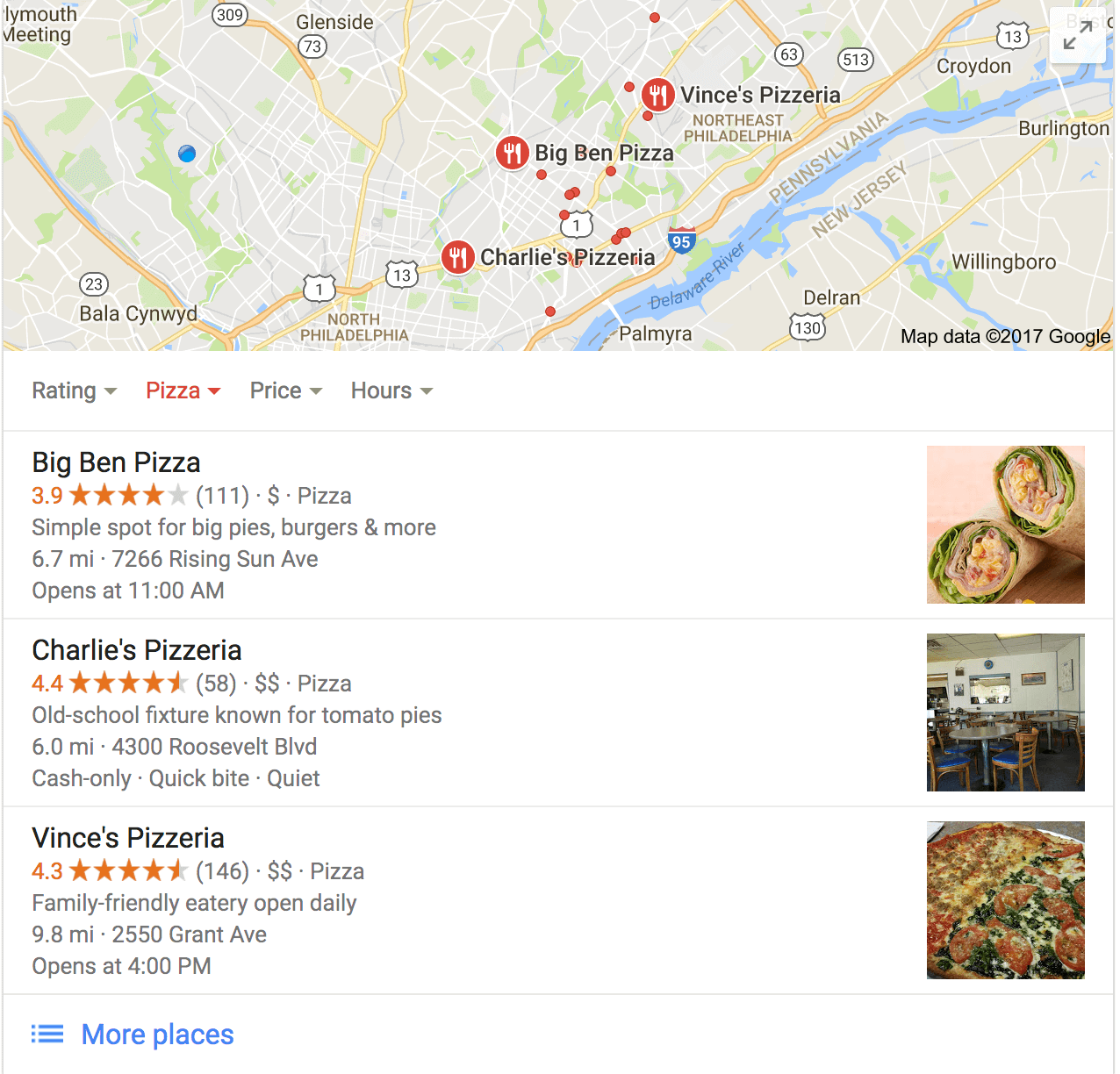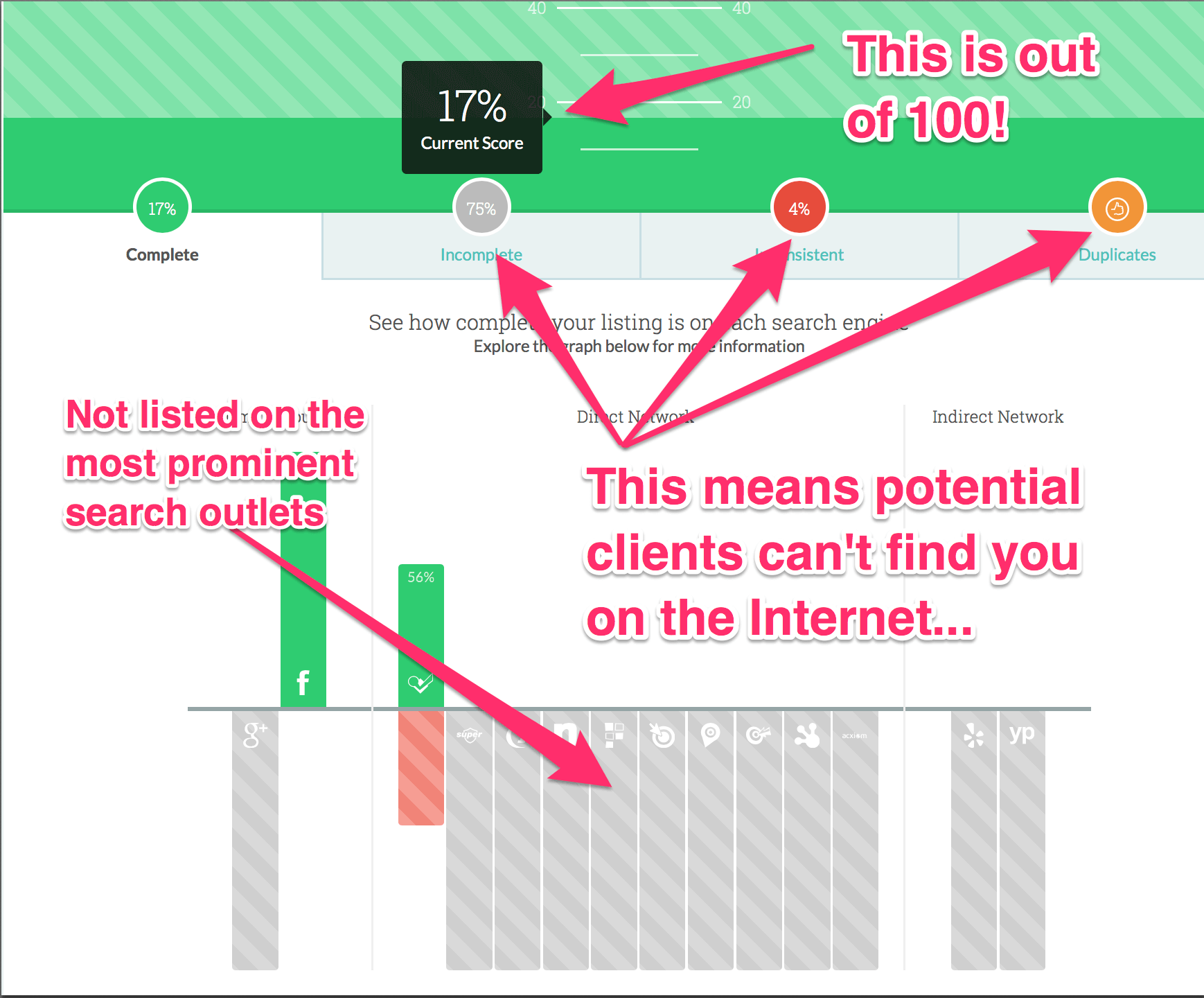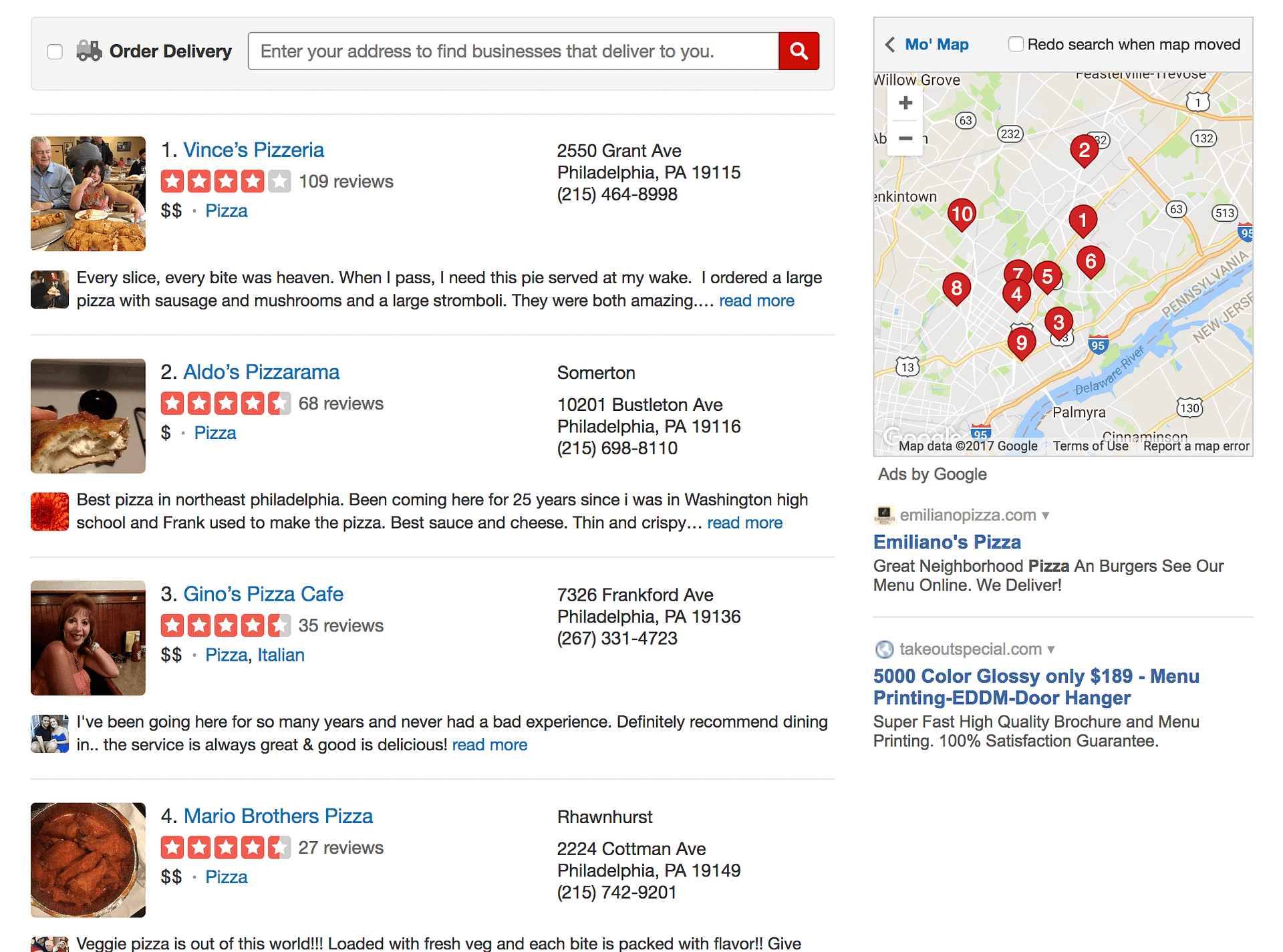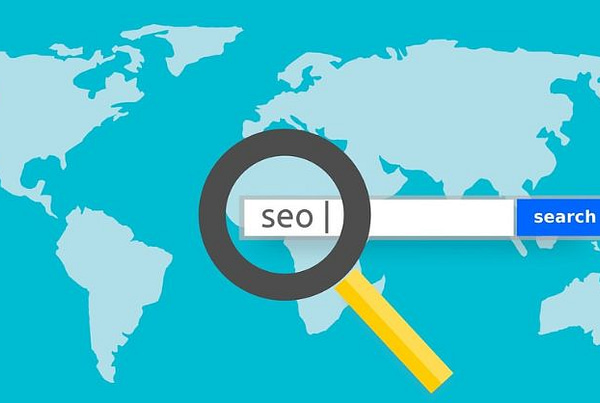Do you know which type of SEO your business needs—organic or local? Recently I shared the post SEO: What is it? Do I need it? Why is it so expensive?. In that post I defined SEO as the process of increasing visibility in search engine results (Google, Firefox, Safari, Yahoo, Bing). Fundamentally, SEO is used to provide web users with the best possible results for their search queries. Since the time I wrote that post, I have had a number of conversations with small business owners that made it clear to me that I need to distinguish the difference between organic and local SEO. First and foremost because SEO is complicated—most business owners are not aware that there are different approaches to SEO. Second, because different companies will have different SEO needs.
If you are new to SEO, here is an easy-to-understand video from Search Engine Land and Common Craft that covers the basics of this ambiguous concept:
Small business owners are generally concerned with the overall health and growth of their business. While technology is directly related to each, owners do not have the time to spend researching and analyzing SEO to determine a strategy that will support their organizational goals. From a leadership perspective, business owners have to be concerned with their ROI from all technology decisions, including SEO. When a business owner receives an email from a digital agency suggesting they are losing business because they are not utilizing SEO, they should be concerned; however, they need to know what type of SEO aligns best with their organizational goals, and budget—organic or local.
What is the difference between organic and local SEO?
A key distinction between organic and local SEO revolves around your target audience. Are you trying to reach consumers from around the country, or are you targeting consumers in a specific, local geographic area? Vlad Rascanu, a seasoned SEO expert and the founder of 80 Proof Digital, clearly articulates the difference between organic and local SEO in his post Organic SEO VS Local SEO – Can You Tell The Difference?
To put it simply, all the best practices of Organic SEO (quality link building, high domain authority, outstanding content, social proof, etc.) primarily revolves around your website. If you are a marketing agency, an online retail store or any business that wants to reach consumers from all over the place, then organic SEO is the way to go.
In case of local SEO all the factors contributing to high rankings in local search results (see below) are based around a specific physical location (or a number of locations). Local SEO is primarily beneficial for small businesses or businesses that are largely focused around a specific physical location (like a restaurant chain in Boston for example).
A number of factors play a role in how high a business ranks in a Google search including website on-page factors, which are in direct control of the publisher:
- Content
- Architecture
- HTML
And website off-page factors, which are elements influenced by readers, visitors, and other publishers.
- Links
- Trust
- Personal
- Social
See The Periodic Table Of SEO Success Factors by Search Engine Land for more details on these factors.
Organic SEO: Links, Local SEO: Citations
As suggested by the SEO video above, along with the SEO Periodic Table, links are one of the most important factors in determining how your website ranks in search engine results pages (SERP). For organic SEO, links are how search engines decide whether your website is worthwhile for searchers to visit. Consider links as the determining factor toward your website’s reputation. You can compare this to how most small businesses rely on word of mouth to build their reputation. Link building is like a recommendation from a friend that tells you to go to a restaurant because it has great food. A link from one site to another says this site has good information! The more links a website has, the better off it will be in terms of its ranking.
I relate link building to this quote from Jarod Lintz in his book This Book is Not for Sale:
It’s not who you know that matters–it’s who knows you that’s important. Personal branding builds up your reputation to the point where you have a presence even in your absence.
Similar to the weight that quality links hold for organic SEO rankings, citations are just as important for local SEO. Gaining quality citations is simpler than the link building process for organic SEO because they are just mentions of your name, address and phone (NAP) in various business listings and directories like Yelp, Yahoo!, Local, etc. as suggested by Vlad Rascanu. He further elaborates, The more citations your business has, the more trustworthy your business is for a given region/location in terms of local SEO. Ultimately citations provide evidence that your business exists at a specific geographic location.
Local SEO: Importance of accurate citations
According to SEO industry leader Moz, 73% of consumers lose trust in a brand if its listings contain inaccurate information. Do not let bad data keep consumers from finding your business online!
A strong local SEO strategy involving accurate business citations will:
- Promote positive associations with your local brand by ensuring no customer is led astray by missing or incorrect data.
- Increase search engines’ trust in your business with a healthy data set that proves you’re a legitimate local resource that deserves to be ranked.
VujaDay Creative Digital Agency has a dedicated team that uses the most trusted tools on the market to ensure that your business listings are up to date, accurate and consistent across the most prominent Internet search platforms. Let us help you prevent missed opportunities, and lost business due to inaccurate business information online.
Our Local SEO package is an ongoing program that updates your information in a dynamic approach, while also maintaining it over time by:
- Fixing incomplete listing
- Fixing duplicate listings
- Generating listings where they currently don’t exist.
Beyond setting up and fixing citations, ongoing maintenance of this online data is key to ensure that your business information remains up to date as 3rd party sources could alter your information without notifying your business.
Organic SEO vs. Local SEO in Action
Consider this, Ray’s Pizza is a small shop located in Northeast Philadelphia who is thinking about how they can attract new customers. Should Ray consider targeting customers in San Diego, Minneapolis, New Mexico, and other location in the US? Chances are, Ray’s Pizza is never going to attract folks from these regions no matter how good their pizza is! On the other hand, Sally’s Apparel is an online storefront, with no physical location, who is also interested in attracting new customers. Sally’s Apparel has a large budget dedicated to digital services, whereas Ray’s financial resources are much more limited. Which SEO approach should these businesses integrate into their organizational digital strategy?
With considerations to the outlined information within this post, Sally’s Apparel would benefit much more from organic SEO than Ray’s Pizza because of the target audience. Compound the fact that Ray’s budgetary constraints would prevent him from paying the higher prices required for outsources organic SEO services (see the aforementioned blog post for how much to expect to spend on SEO) and he is only left with one SEO option—a local strategy.
If a hungry person in Northeast Philadelphia is searching for a local Pizza shop with good reviews, he or she will often head directly to Google or Yelp. Below is an example of what this hungry person might find when searching keywords “Northeast Philadelphia pizza”
In the screenshot above you see a list of local pizza shops in Northeast Philadelphia, along with their NAP, location on Google Maps, and positive online reviews, which is also a key indicator of your ranking for local SEO. For Ray to appear higher up in the rankings, they would have to claim their business listings in key search outlets, while also ensuring that existing listings are complete and consistent. According to Moz, Local SEO also extends to managing online ratings and reviews, local-centric social media engagement, and beyond. Based on my recent conversations with local business owners, I did some local SEO research on a few small businesses. Below is an example that that illustrates just how poor your business listing might be, without you even knowing!
If you are anything like my wife, you immediately jump on Yelp when you’re looking for a good place to eat. Below is an example of what you will find based on the same keyword search as above:
Yelp search results:
Again, Ray’s Pizza is nowhere to be found in the search results. The first step toward a more effective approach to improve the local visibility of Ray’s Pizza, would be to build a fully optimized, SEO ready website. Next, a more thorough SEO strategy would need to be formulated based on organizational goals of Ray’s Pizza. First and foremost, a Google My Business listing would be created and verified to ensure customers are able to locate Ray’s Pizza within a Google search. Next, using Ray’s NAP, any inconsistent, incomplete, or duplicate listings would be located and fixed. Furthermore, any effective local SEO strategy would ensure that Ray’s NAP exists on key search networks, including, but not limited to Google, Yelp, Bing, Apple Maps, Factual, Yellow Pages, Insider Pages, City Search, Hot Frog, Four Square, SuperPages, Best Of The Web, and more.
In terms of SEO, agencies need to be as transparent as possible with SEO options for small business owners who understandably don’t know what SEO is, what it can do for them, and what approach they should implement to align with their organizational goals. Small business owners need to understand that they do not have to pay the high prices that many SEO companies force them into thinking they need to help their business thrive and grow.
At VujaDay Creative Digital Agency, we want to ensure we are meeting the needs of all small business owners when it comes to technology, and organizational growth. If you would like us to discuss a particular topic, click here to let us know!


